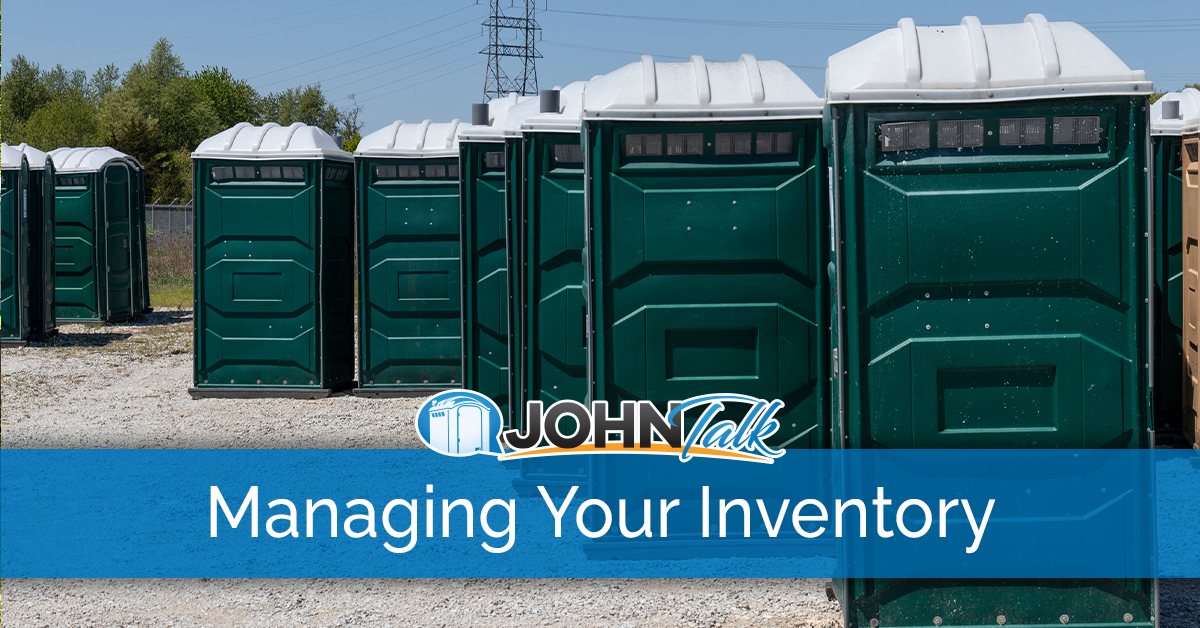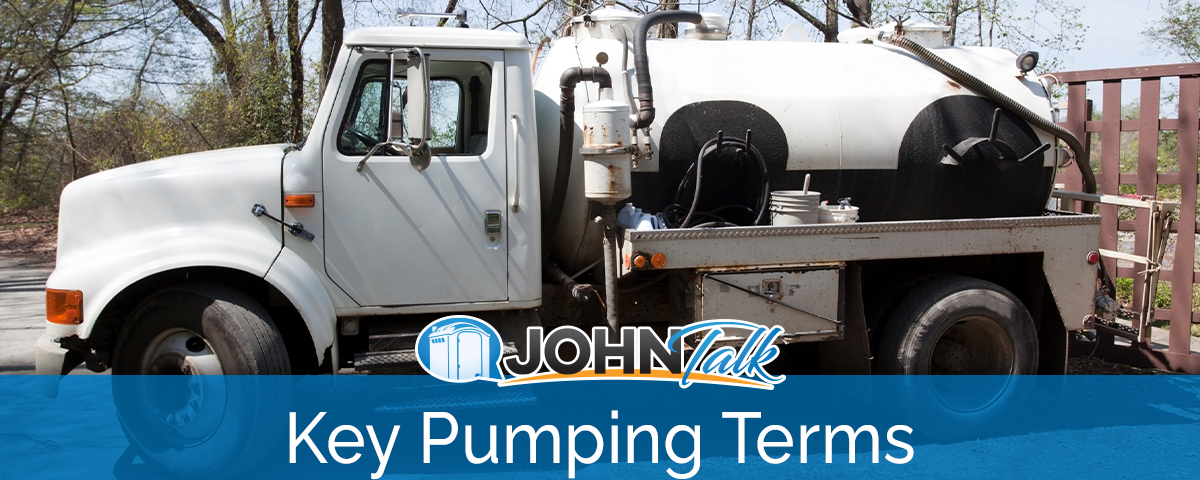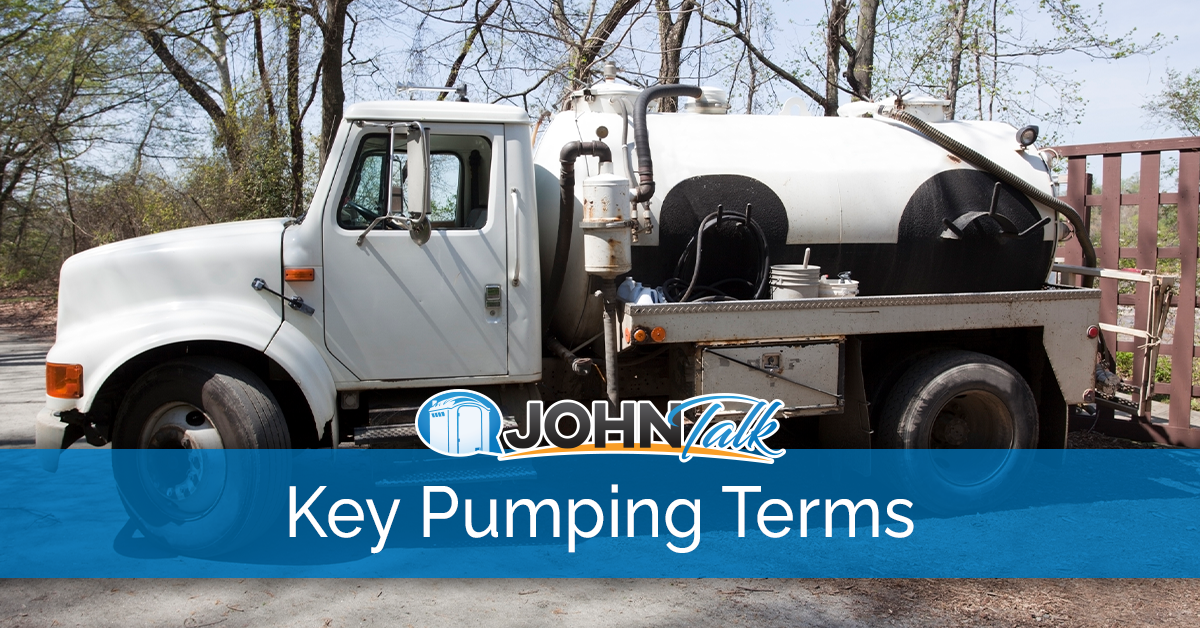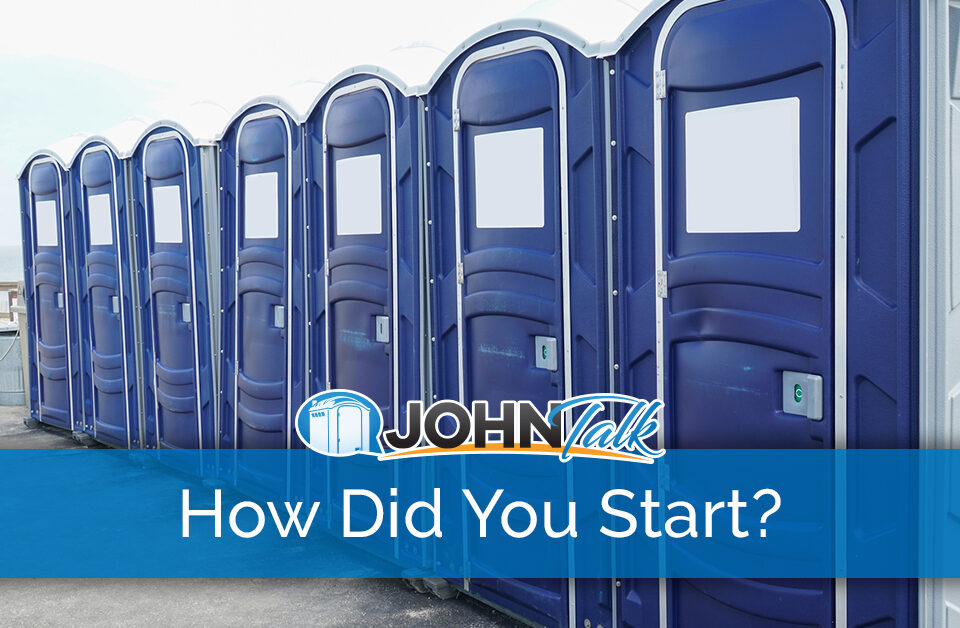
Fallout from Hurricane Ida: Effects on the Portable Restroom Industry
September 7, 2021
Managing Your Inventory: Tips for Success
September 20, 2021Although you rent portable toilets, you may receive calls about many other services, from clogged sewer lines to full septic tanks. In some cases, you may have the pumper truck and fittings to handle the task. However, certain situations require special permits and equipment.
Either way, when a potential customer calls, you want to be able to answer their questions and respond to their requests. Below, you’ll find standard pumping terms, definitions, and ideas for expanding your business while maintaining legal compliance.
Pumping Terms and Definitions
Different codes, soil types, and climates can affect what your business can and can’t pump. Therefore, not all portable restroom owners are able to pump non-human waste or have the equipment to do things like clean lines or grease traps.
Common pumping terms in the portable sanitation industry include:
- Cesspools: Also known as a seepage pit, a cesspool is a pit encircled by stone or brick that may receive waste liquids from the septic tank to dissipate into the soil.
- Clarifier: A tank that holds hazardous or non-hazardous waste, often used in manufacturing. It requires pumping, cleaning, and waste disposal.
- Drainfield: Also called a leach field, it contains shallow, rock-filled ditches and receives liquid waste from septic systems.
- Grease trap: Typically used by restaurants, kitchen wastewater flows into a container, and the grease stays while the grease-free water flows to the sewer.
- Holding tank: Also known as a tight tank, it’s similar to a septic tank as it holds waste underground but lacks a drainage outlet.
- Line cleaning: Sewer lines carry waste from the building to a city-connected sewer or septic system. If there’s a blockage, pipes must be cleared.
- Septic tank: An underground tank that holds waste. Sludge forms on the bottom, and liquid moves to a leach field or seepage pit for filtration.
- Septic systems: The combination of an interior main drainage pipe, septic tank, and a leach or drain field.
- Sump: A shallow pit in basements uses a pump to move excess water to the storm drain or sewer system.
Expanding Service Offerings
In addition to extending your service hours or offering emergency services, PROs may want to expand their service categories. Supplying customers with portable toilets and sinks may remain your key offering, but you may also provide septic pumping or drain cleaning services.
In addition, if you’re willing to navigate various local codes and regulations, you may be able to take advantage of opportunities, such as:
- Pumping water from swimming pools and ponds or removing sludge
- Clearing water from flooded basements and properties
- Emptying grease traps at restaurants
- Snaking drains and pipes to clear them of blockages
Get the JohnTalk “ALL-ACCESS PASS” & become a member for FREE!
Benefits Include: Subscription to JohnTalk Digital & Print Newsletters • JohnTalk Vault In-Depth Content • Full Access to the JohnTalk Classifieds & Ask a PRO Forum
Breaking Down Rules and Regulations
Typically, PROs secure permits to dump human waste at local waste stations. These permits usually don’t allow the dumping of other substances, including rainwater, pond water, grease, or other forms of non-human liquid waste or sludge.
However, if a large market needs these types of services, it may be beneficial to check out the requirements and costs of obtaining permits. For further assistance, use this guide to understanding licenses, permits, and regulations.
Use Standard Terminology to Avoid Misunderstandings
Undoubtedly, people will ask your service technicians or office staff about tasks unrelated to portable restrooms. Define what services your company provides so that every employee can answer a potential customer’s question during the first interaction.
Looking to Take Your Portable Restroom Business to the NEXT LEVEL? Download our FREE Guide: “Your Guide to Operating A Portable Restroom Business.”
Thinking About GETTING INTO the Portable Restroom Industry? Download our FREE Guide: “Your Guide to Starting A Portable Restroom Business.”







2 Comments
I’m trying to open my own business but I need to find the aseptic thank can I please have the information where to find it? Thanks
I’m looking to buy a used, or band new, 1500 gallon septic tank for my 3ton truck vac service